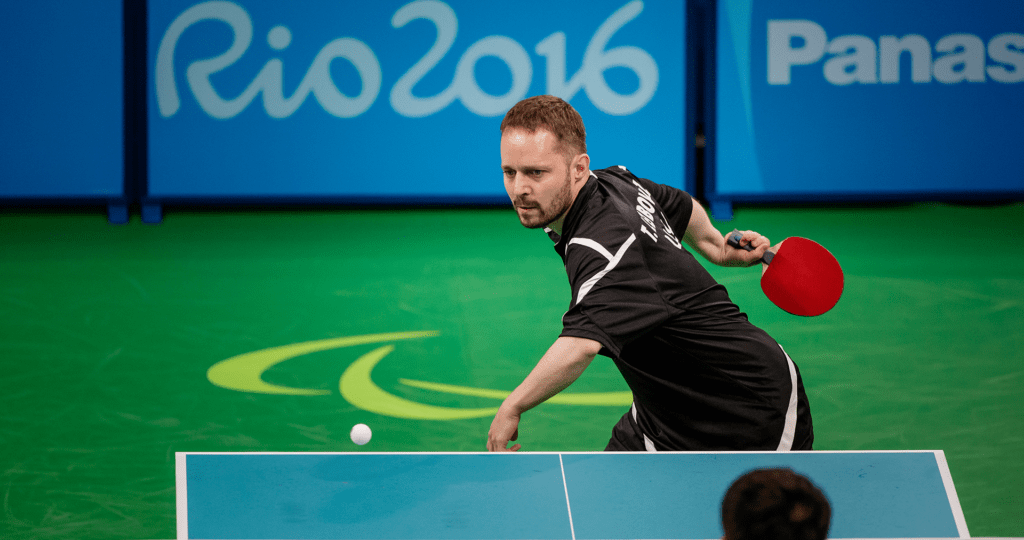
Written By Brian Barth
At 47 years old, the relentless drive that Paralympian and United States Table Tennis Hall of Famer Tahl Leibovitz has is nowhere near fading away. His accolades include a Paralympic gold medal, 15 major titles, and 12 US Open titles. But these titles were all preceded by some unimaginable events.
Barely a teenager, Leibovitz was homeless due to his poor relationship with his father. After spending most of his early years in Queens, he occasionally dropped by his family’s house to eat or sleep with help from his sister. Other than that, it was just him versus the streets of New York City.
Leibovitz spent almost half a decade of his pre-adult life in poverty. Fending for himself and his safety was a top priority. But this changed when he found the South Queens Boys and Girls Club, which helped rejuvenate him through table tennis. His registered “home club” for United States Table Tennis has been there ever since.
Once off the streets, Tahl was able to study and graduate from New York University in Manhattan. This was an influential turning point in his life as it paved the way for him to be a social worker – something he still practices today.
Leibovitz faces a condition known as Osteochondroma. He experiences benign bone tumors all around his body. This causes him to compete in para-events on the Olympic stage. His specific condition has been scattered throughout many Paralympic classes over the years including the C6, C7, C8, C9, and C10 divisions. These classifications are based on a C1-to-C10 scale as described by the International Paralympic Committee, with C1 being the most severe condition. In 1996, Leibovitz attended his first Paralympic Games in Atlanta, GA. He won gold in the Men’s Singles C7 as well as bronze in the Men’s Teams C6-C8 events. Since then, his accolades have included an incredible 13 Parapan American gold medals and 50 International Para Championships.
In the 21st Maccabiah, however, he will be participating as both an Open and Para-athlete. When comparing the difficulty in playing able-bodied and disabled athletes, he even says that “able-bodied players are easier” for his style of play.
Beyond the competition, Leibovitz is most looking forward to returning to Israel.
“You would expect me to say that Israel is my favorite place on Earth… but it actually is,” he said.
In fact, Leibovitz was actually born in Israel before moving to New York shortly thereafter. His personal roots and those of his sister lie deeply in the Holy Land. He has had no shortage of success there, including numerous medals from previous Maccabiah. In the 21st rendition, he is pursuing Maccabiah silver and gold as additions to his decorated career in table tennis. Be sure to tune in as Tahl helps lead the United States Open Table Tennis team from July 17th through the 22nd in Ra’anana.
Brian Barth is a rising senior at Columbia Grammar and Prep School in New York City. Follow him on Twitter (@BrianWBarth) and Instagram (@brianw.barth)
